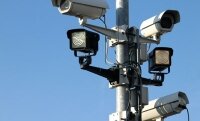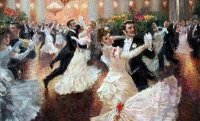An Interview w/ Seth Abramson
Seth Abramson grew up in Massachusetts and was educated at Dartmouth and Harvard Law School. He worked as a public defender in Nashua, New Hampshire for six years before returning to school in 2007 to pursue an MFA degree in Poetry at the Iowa Writers’ Workshop, where he is currently a Teaching-Writing Fellow. Seth’s poems have been published widely in magazines including Poetry, New American Writing, jubilat, and Boston Review. His first book, The Suburban Ecstasies, is forthcoming from Ghost Road Press in Spring 2009. He was recently awarded the J. Howard and Barbara M.J. Wood Prize from Poetry magazine. His blog has become famous for tracking annual MFA applications and he is a co-author of The Creative Writing MFA Handbook with fiction-writer Tom Kealey.
§
Most of the hundred-or-so pages of your forthcoming book, The Suburban Ecstasies, can be read as one long poem or parts of a whole. What brought you to this epic form? And how did the collection develop?
I think many circumstances conspired, in my childhood, to make me susceptible to, and intrigued by, the “epic narrative.” I grew up in a heavily-wooded area of suburban Massachusetts, and spent much of my childhood playing in and around forests, which I’ve always since associated with the magical, mysterious, and grand; my religious education in Judaism, which ran alongside my secular education until I was sixteen, strongly emphasized “story” as a vehicle for communicating insight; my reading habits as a child (and still) were always geared toward magical realism and the all-encompassing environment of the epic. I wanted—perhaps have always wanted—new spaces to inhabit, larger spaces conceptually as well as physically, and for many years reading novels was the way I accommodated this interest. It wasn’t until I was much older that I realized these spaces can only be found through a daily devotion of the self; novels are wonderful, but are only figuratively transportive, of course.
I think I eventually turned to poetry—despite my enormous continuing regard for the immersive novels of writers like Rushdie and Stephenson—because I felt even the largest space, if composed of only a single narrative, is in some sense confining, no matter its grandness. I have a strange affinity for, and yet also a deep aversion to, confinement. Trying to capture expansive narratives in the relatively limited space of verse is something that intrigues me; that twisting of the concept of narrative, almost like torque being applied to a tray of ice-cubes, makes it possible to both contain and only hint at narrative within the context of a very few lines.
Every poem in The Suburban Ecstasies was written on its own merits—I didn’t see the larger picture, the larger narrative, as I was writing it. It was only after several years of producing fractured not-quite-narratives that I was able to see what it had all been building toward. And then, suddenly, it seemed like it couldn’t ever have taken any other form. That’s where the notion of “ecstasy” (in the title) came from. In life (I’ve found) we’re only ever given a small piece of the larger whole to inhabit and reflect upon, and yet so many of us harbor hope of an ecstatic moment—even just one, across an entire lifetime—in which we’re permitted to see the entire field. Calling my first collection The Suburban Ecstasies was a way of both reifying my sense of confinement as a suburban youth, while also recognizing that it can only be the experiences we actually have (however limited they sometimes seem to ourselves and others) from which we can emerge into something else entirely.
As you’ve mentioned you’ve come out of the suburbs; in a number of your poems (“Provincetown Fourth,” for example) you evoke the feeling and history of your home in New England. What is the relationship between this landscape and your poetry?
I don’t know that I’ll ever be seen as a New England writer, but I certainly wouldn’t mind it. I do think there’s a certain type of reserve that dominates the culture there—it really is the nation’s closest kin to England—and while my poetry isn’t reserved in the usual sense of the word, I don’t often talk about myself “as myself” in my poems, which is an ideal I do a terrible job of living up to in my personal life, but certainly view as an aspiration. And it’s a historically New England-type worldview I think.
I love New England, and I am in love with New England. I can’t imagine not infusing my poetry with everything I love—and also, I’m sure, everything I fear—so yes, New England’s always going to be in there somewhere.
These days the majority of first books seem to be a product of a first book contest. The Suburban Ecstasies is being published in a more traditional way; that is, by a small publisher who bought the book from you. What has been your experience publishing your first book outside of the contest system?
I probably won’t know the full answer to that until the book comes out, but so far it’s been everything I could have hoped for. While I’ve been submitting my second collection to contests, with my first collection it really was important to me to finally put my cards on the table, to make a statement about the way I approach and experience the act of poetry-writing. The sort of hands-on, highly personalized environment a small press offers felt to me like the perfect setting for a first collection to come to fruition. I think the contest system, and perhaps, to an even greater extent, MFA programs, have prompted young writers to think they won’t make it as a writer unless their first book wins a major award. I try to tell them that the most important thing is that their first collection be good—the rest will take care of itself eventually. Used bookstores are full of contest-winning collections no one ever read or will read, but great literature has a permanent niche.
You are a trained lawyer, and worked for six years as a public defender. What is the relationship between law and poetry for you?
Sometimes I think my job as a poet is to forget I was ever a practicing attorney—just as, when I was an attorney, it was important for me to try to avoid my poet-self’s dramatic oratorical flourishes. But then I’m also acutely aware of how both law and poetry are concerned with process, and if I reflect on it, it’s certainly become my belief that how we write determines what we write. I’m not a classicist in my approach to writing, so mastery of craft, finding (say) the perfect metaphor for a windy day isn’t of particular interest to me; what does interest me is how animism, the sort of “channeling” poets like Duncan and Spicer and Creeley were after, helps one plug into a generative force that’s fundamentally human. Animism, too, is a sort of process, though a matter of latent structure I think—of thrusting the question of craft so deep into the psyche it sticks—as opposed to the sort of obvious structure that governs the surface of a poem (metaphors, similes, consonance, and so on). Which, I suppose, is one way of thinking about the connection between poetry and the law: poetry, for me, is about internalizing process, whereas the law is about externalizing it.
I’m also interested in, and constantly trying to work toward in my poetry, the notion of universal narrative. It’s the sort of big-picture, schematic thinking I suppose appeals both to trial attorneys—especially when we’re preparing opening and closing statements—as well as structuralists and animists. So there’s that, too: whether I like it or not, I feel like my task in poetry is more often than not to tap into the historical structures that lie beneath words. And that’s exactly what I spent most of my time doing as a public defender. Cross-examination may be just a more conscious form of it.
What brought you to poetry in the first place?
Law school, without a doubt. It’s an emotionally brutal experience. I think that’s probably because it represents the literal attempt of an institution (not just a particular law school, but the American legal system generally) to rewire a human brain. When I went to law school I was certainly open to retooling my intellectual skill-set, but not my emotional one. It’d taken too long to develop to cast it aside so casually. Writing poetry kept me grounded, reminded me that I wanted to learn to think like an attorney, not live like one. It’s far too easy for the sort of thinking fostered in law school—objective, strategic, tactical, sequential, ordered, logical, and so on—to infect how one thinks about and deals with people in one’s personal life. Frankly, I even found such thinking to sometimes be an impediment as a public defender. Being a good negotiator means letting the other person see you’re human. If I’m obsessed with the notion of ethics in poetry, both in the community of poets and in the poems themselves, it’s because I literally came to poetry out of a strong desire to go to law school and remain a good person. It sounds simplistic, even simple-minded, I know, but I can tell you it certainly didn’t feel that way at the time.
While you were a practicing lawyer you were also a political commentator for Minnesota Public Radio. How does your deep interest in politics affect your own poetics?
While I’m very interested in working with archetypes in my poetry, I’m always conscious, too, of trying to rearrange those archetypes in a way that seems, to me, ethical and just. As a political progressive, and as a student of American politics, I know that swaying the movable middle of the electorate is often about finding ways to personalize politics. That way the single mom on WIC isn’t some distant construction but a person who lives three streets over from most voters, and the issue of targeted tax cuts isn’t about class warfare but whether you can provide for your family and afford college for your kids. When I write about politics, I’m often trying to identify commonsensical ways of thinking and talking about policy, and using common sense is just another means of mining personal experience, I suppose. With my poetry, the impetus is the same but the means to the end is different. To the extent Art is more powerful than Politics, it’s because it takes a longer view, so for me, the longer view of the question of ethics is that we learn how to associate vital concepts—not just individual people—in a way that moves the whole invisible framework toward fairness and justice. It seems naive to speak of fairness and justice in what’s always been a distinctly cynical culture, but there it is: I do believe in them, and don’t mind talking about them openly, including addressing them with and through my poems. For me it’s a very small sort of poetry that ignores the elephant in the room, which is the fact that we’re all human and yet we often treat one another inhumanely. Years of public service taught me that ethics is only a secondary consideration in places where everything human is a secondary consideration.
How has returning to school changed, helped or encouraged your path as a writer?
It’s been a blessing in every sense. Logging a full day in court and trying to write poetry at night just isn’t the same animal as clearing a space in your life to focus solely and singularly on Art. The sort of aesthetic growth and intellectual maturity I think it would take a poet working as an attorney ten years to achieve is probably possible in two or three years in an MFA program. Which isn’t to say ten years gets one very far, either—the secret to putting the MFA experience in perspective is understanding that honing one’s skill as a writer is a lifelong proposition. The MFA helps set you on the right path (or, for some, convinces them that the life of a writer is the wrong path), helps you clear your head of distractions (if you let it), and, at least for me, provided me with a language within which I could think about and talk about contemporary poetry—including my own. That knowledge, and that self-knowledge, has definitely affected my writing. Of course, I may be more impressionable than most, so for many MFA students I’m sure the full effect of the MFA experience is something they discover only gradually. It’s probably better that way. But as someone who was at a point in his life where he really had to decide, “Am I primarily an attorney, or primarily a writer?”, the immediate impact the Workshop has had on me is certainly a welcome surprise. Being here has given me the strength to say what seems to so many people like such a simple thing to say: what I am and what I will be is a poet.
Your blog, which is famous for its coverage of MFA acceptance statistics but also has quite a bit of political content, bears the same name as your forthcoming book from Ghost Road Press: The Suburban Ecstasies. How did they come to share a name?
When I started blogging, I’m not sure I knew what would come of it. In that sense, it felt similar to my experience writing the poems that ultimately became The Suburban Ecstasies. As I mentioned, I wrote those poems because they were what I had it in me to write; when I wrote them I didn’t know how or if they’d come together as a collection. Likewise, when I started up the website, I had no idea what would come of it, or if anything would. But that phrase that was sticking with me (perhaps to me) at the time —“suburban ecstasies”— seemed relevant to where I was in the world, and so not merely as an artist but as a would-be blogger also. It commingled my awareness of having had a safe suburban childhood with my equally strong desire for a sense of unlimited space, and if there’s one thing a personal blog affords it’s a very particular kind of unlimited space. One of the many reasons I was drawn to being a public defender is that it forced me out of my comfort zone in more ways than I ever would have allowed when I was younger; blogging, in that one sense at least, served the same function.
How does your blog and the relationship it creates with a larger writing community relate to your own writing philosophy?
I think my desire to research and write about MFA programs is a confluence of several things: a love of statistics carried over from childhood, an interest in community, and an almost obsessive need to identify (if not fully inhabit) structures. The statistical aspect is self-explanatory, I suppose, but the importance of community to me is a little more difficult to explain. Part of it, I guess, is that as an attorney it took me a long time to find my place in the artistic community—to even self-identify as an “artist”—and seeing trends and frameworks in the contemporary American poetry community helped me make that transition. But even more importantly, as someone who went to law school specifically to become a public defender, wanting to help those in tough straits is a part of my personal makeup; when I decided to leave the law to get an MFA, I suddenly felt as though a major piece of my worldview and lifestyle had vanished. Providing information about MFA programs to an underserviced sub-section of the community of artists—young people looking to do graduate study in the field—was one very, very small way of regaining something I felt I’d lost. The response my research has gotten makes it all worthwhile. As to the last part of the equation, looking for structure, I think it’s just something they drill into you in law school. Every attorney is, in some sense, a product of his training, and in that sense at least I’m no different.
–
Karen Rigby is a former editor for Emprise Review.







